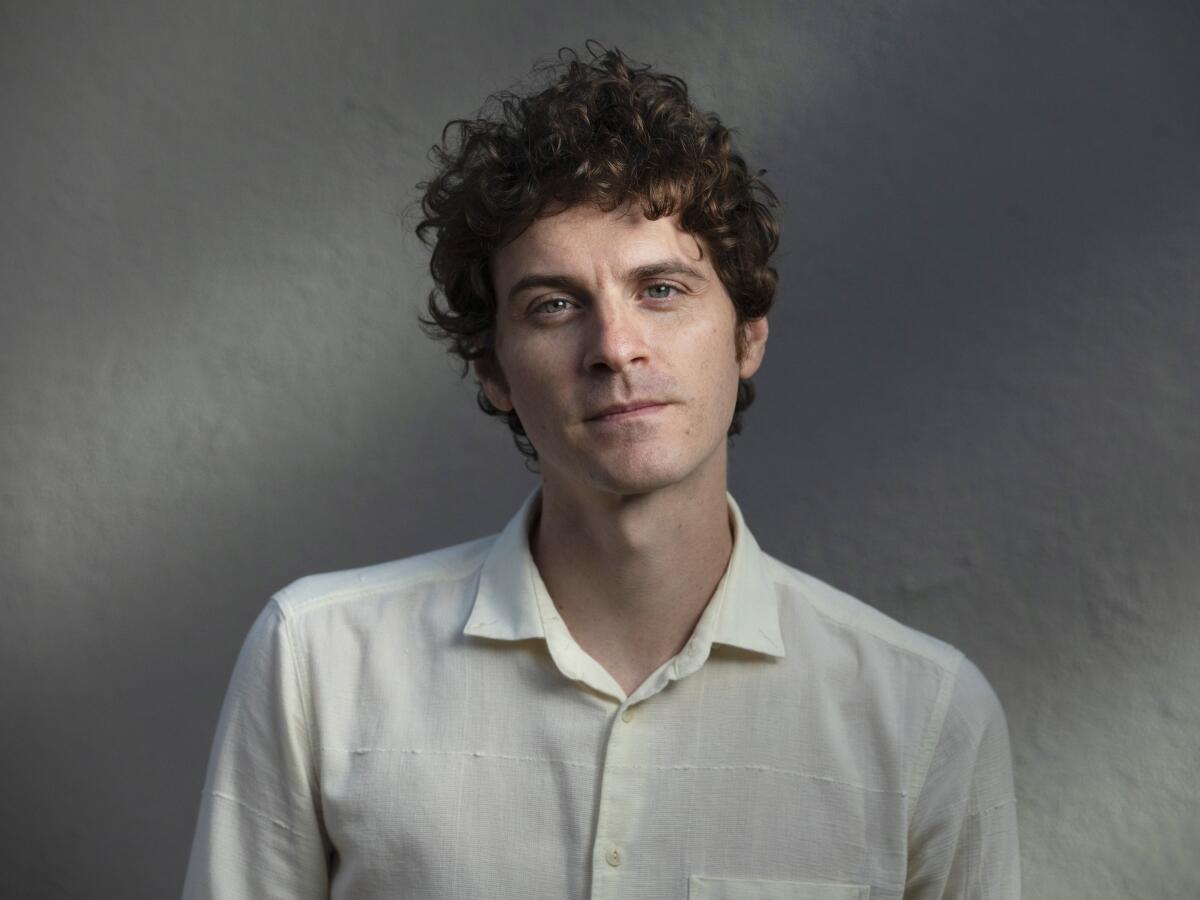Emile Mosseri gets to the heart of two films with his romantic and dreamlike scores

- Share via
Emile Mosseri arrived out of nowhere in 2019, it seemed, when his romantic score helped lift “The Last Black Man in San Francisco” into the clouds of a stylized fairy tale, and directors immediately came calling for some of that magic.
In addition to scoring Season 2 of the Amazon series “Homecoming” — which found him reinterpreting old paranoia film music for the podcast age — Mosseri was courted by two indie filmmakers with two very different but highly personal projects.
He was a last-minute godsend for Miranda July, who had already “burned through” four other composers on her idiosyncratic “Kajillionaire” — starring Evan Rachel Wood as a lonely oddball named Old Dolio, who’s exploited by her grifter parents (Debra Winger and Richard Jenkins) until she finds liberation in a sexy young woman played by Gina Rodriguez.
“I love the movie, and I couldn’t crack the score,” July said. “I felt like it just had to be perfect.”
Mosseri watched her film and wrote a few themes in response. Just before he tried out the love theme on piano for her, July warned him that she could be kind of brutal with feedback. Then he began to play.
“I mean, it was the most beautiful thing I ever heard,” July said. “I remember saying, ‘I’m kind of embarrassed. I like these so much. No one I’ve been working with has ever had this experience of me just sitting here kind of dumbly smiling.’”
Mosseri said the movie struck him as “this unapologetically romantic love story that kind of sneaks up on you and washes over you and swallows you up.”
It was “almost like he didn’t fall for this idea of whimsy,” July said. “He took it very seriously. He sort of raised me, almost — like, ‘You say this is a romance? Well, how about the greatest romance of all time?’ It was like he was scoring the movie in my heart, not just what was there.”
Mosseri found a way to thread between the film’s eccentric, comic elements and the slow-burning romance between Wood and Rodriguez. He dressed his lyrical themes in the wobbly skin of Mellotron and vocoder and his own voice singing and breathing and chanting, along with “alien, theremin-like” vocals by Theodosia Roussos, who played English horn and oboe on the “Last Black Man” score.
“There was something about it that felt very animating, or dimensional,” July said — “like creating more dimension than you might expect in one movie, in one world.”
Mosseri entered his other 2020 film on the ground floor. “Minari” is about Korean immigrants attempting to farm in Arkansas in the 1980s, and writer-director Lee Isaac Chung met with Mosseri during the script phase. Chung shared that much of the film was inspired by his own mental Polaroids, and he wanted a score that evoked the feeling of childhood memory.
Mosseri wrote and performed a few themes before production began, which Chung listened to on his drive to and from locations in Tulsa, Okla. After the director and his cinematographer, Lachlan Milne, listened to a swirling, ethereal piece Mosseri named “Tractor,” they decided to shoot the sequence where Jacob (Steven Yeun) first drives his tractor — while his wife, Monica (Yeri Han), builds a tree swing — in slow motion.
“We needed to let the image fit with that music,” Chung said. “I felt the same with some other pieces. He sent something for the fire, which is a piece of music that comes near the end. Hearing all these pieces, it just made me feel like: OK, I’ve got to film it so that it lives up to the music. It honestly infused the film — to the point that, in my mind, I see this as an essential part of making a film now.”
“Minari” is about everyday people, shot in a naturalistic style, but Chung let Mosseri’s lyrical, expressive score nudge it into poetry.
“I knew that the film wouldn’t work if it is strictly on a naturalistic, realist sort of level,” the director said. “Somehow, it needed to balance the quotidian details with that dreamlike feeling.”
The movie opens with the little boy, David (Alan S. Kim), staring out of the family car as they roll up to their new property in Arkansas. It’s accompanied by a dreamy piece with warbling vocals doubling the wistful piano melody, which Mosseri called “Big Country.”
“I remember Isaac saying, specifically, that that melody felt nostalgic to him and felt like a childhood memory to him,” Mosseri said. “It really positions the film — not just that scene, but the entire film — through the eyes of David, which is essentially through Isaac’s eyes.”
Late in postproduction, looking for a piece for the end credits, they decided to turn that melody into a song with words by Mosseri and Korean lyricist Stefanie Hong — “Rain Song” — sung by Han herself.
It was a gift, Mosseri said, “that the actress that stars in the film would sing in this beautiful voice, and that could really kind of bring home the idea that the song itself is a lullaby from her to her son.”
More to Read
From the Oscars to the Emmys.
Get the Envelope newsletter for exclusive awards season coverage, behind-the-scenes stories from the Envelope podcast and columnist Glenn Whipp’s must-read analysis.
You may occasionally receive promotional content from the Los Angeles Times.










